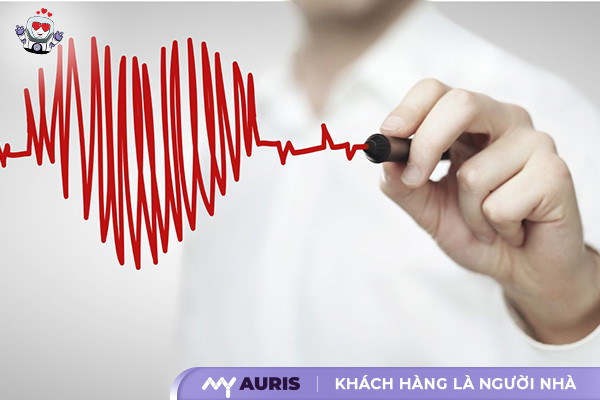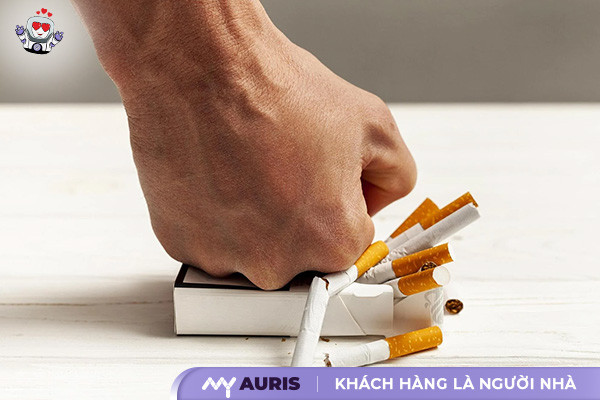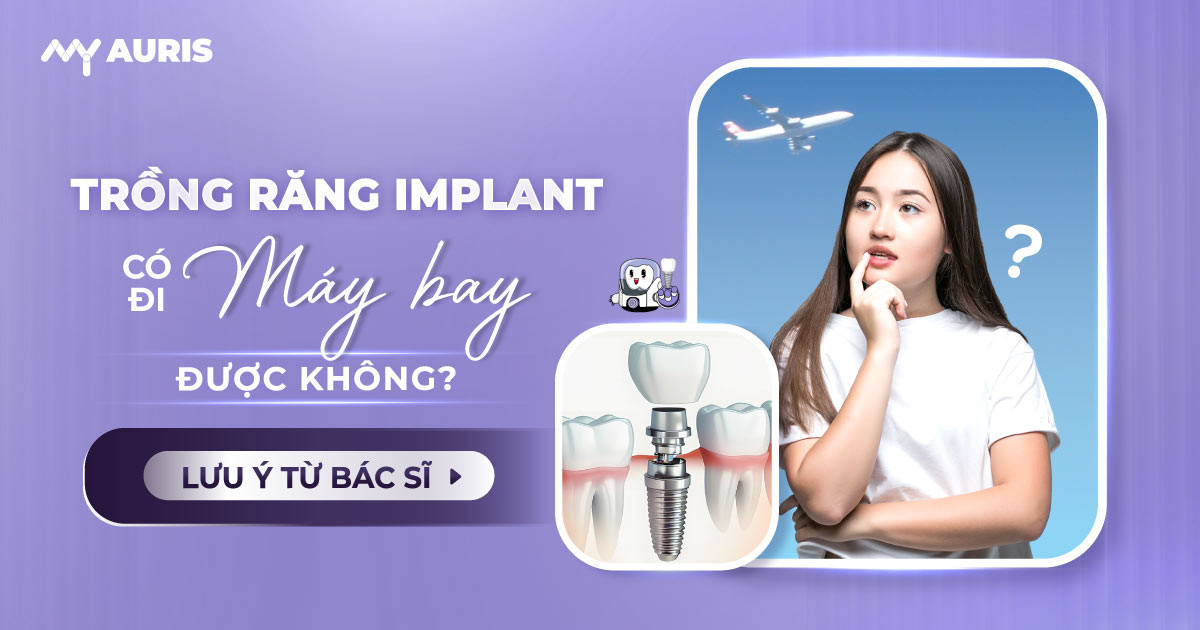Many people believe that after getting dental implants, you won’t be able to fly due to health concerns or potential alerts at security checkpoints. Is this true? Let My Auris help you find the accurate answer in the article below! This article is built with the latest and most reliable information to help you address concerns related to flying after dental implant surgery.
Will Dental Implant procedures trigger security alarms at airport checkpoints?
Many people are concerned about whether dental implants will trigger an alarm when passing through airport security checkpoints. Generally, implant posts and abutments – the components that make up a dental implant – are made from Titanium, a common metal in medicine. Some worry that this might be a metal not allowed through security checks.
However, in reality, airport security sensor systems only activate an alarm when detecting metal exceeding 4 degrees. Meanwhile, implant posts are meticulously researched and widely used with metal materials whose content does not exceed 4 degrees. This ensures user safety without affecting security equipment.

Can you fly after dental implant surgery?
You can still fly after dental implant surgery; however, to help the wound heal quickly and the implant post integrate optimally with the oral environment, you should observe some important precautions. Specialist doctors often recommend limiting strenuous activity, excessive movement, and allowing adequate rest for about 3–10 days, depending on the simplicity or complexity of the implant procedure.
In cases where implant placement is combined with bone grafting or sinus lifts, you should avoid flying for approximately 2 weeks. This is because changes in air pressure in the aircraft cabin can affect the stability of the implant post as well as the healing process.
Furthermore, you need to be aware that, according to aviation security regulations, all metal objects carried by passengers must be left behind and are not allowed on board. However, implant posts in the jawbone typically do not affect security checks, so you can be completely reassured.
International standard medical-grade implant materials – the determining factor for effective implant placement
In the field of Dentistry, the quality of implant materials plays a crucial role in ensuring stable and long-lasting restorative results. Currently, titanium is a widely recommended material in medicine due to its special biological properties: non-allergenic, excellent bone integration capability, strong, and resistant to oxidation even in harsh environments like the oral cavity. Therefore, titanium is the top choice for manufacturing international standard medical-grade implant posts.
When choosing a specialized dental clinic like My Auris, you are guaranteed to receive international quality implant brands, ensuring the highest pure titanium content and clear origins. This not only enhances safety but also extends the lifespan of the implant post over time.
Many people wonder: can you fly normally after dental implant surgery? The answer is yes. Thanks to international medical-grade implant materials, individuals with dental implants experience no obstacles when passing through airport security checkpoints. In fact, many overseas Vietnamese and international clients have had dental implants at My Auris, then flown normally and attended regular check-ups without any issues.

Implant posts convenient for air travelers
Today, implant posts designed for air travelers feature international quality shapes and sizes. All products undergo thorough research, are transparently published, and widely circulated in many countries. One important standard is to ensure compatibility with passing through airport metal detectors.
According to experts, airport metal detectors typically classify metal sensitivity into levels from 1 to 15, where 1 is the lowest sensitivity and 15 is the highest. Standard airport detectors are usually set at level 5, which is safe for standard medical materials such as implant posts. Therefore, after dental implant surgery, you can absolutely fly normally without worrying about triggering alarms or requiring additional checks at the security area.

What should you do for a comfortable flight after dental implant surgery?
After the recovery phase, if you are preparing for a long trip, you should prioritize oral hygiene before flying to protect the implanted area. Especially for long flights, remember to bring oral hygiene tools such as a soft toothbrush and mouthwash to keep your oral cavity clean throughout the journey.
While flying, it is advisable to choose easy-to-chew foods like porridge, soup, or smoothies to avoid strong impacts on the implant post, which could cause sensitivity or affect the implanted area.
We hope that with the above notes, you have found the answer to the question “Can you fly after dental implant surgery?” Furthermore, to ensure a safe, effective, and quick recovery process for dental implant placement, choosing a reputable dental clinic from the outset is extremely important.
My Auris – a specialized dental center with over 10 years of experience, proudly having performed hundreds of thousands of successful implant placements. The team of highly skilled and experienced dentists here will provide thorough consultation, design precise treatment plans, and deliver comprehensive dental restoration results for each customer.
From before implant placement, during implant placement, to after implant placement, My Auris dentists always accompany customers, providing timely advice, answering questions, and guiding appropriate oral care. This not only facilitates the healing process but also supports essential daily activities after the implant procedure.





